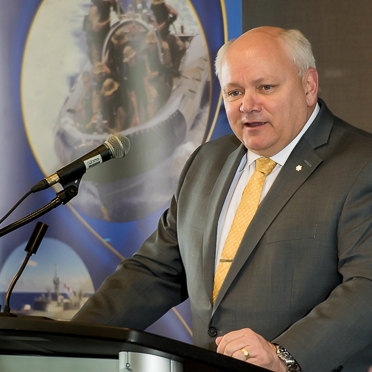As refugees continue to flee Libya and the country disintegrates further into anarchy, many have condemned NATO’s 2011 Operation Unified Protector to protect the civilian population from threat of attack.
LGen (Ret’d) Charles Bouchard says that what is happening in the country today “breaks my heart,” but the commander of NATO’s Combined Joint Task Force argues that the mission itself was a success.
Speaking at a luncheon during the Navy League of Canada’s annual general meeting in April, he said “our job was to protect the population and we did exactly that. The problem was that the rest of the world thought the mission was over. We should have learned from Bosnia, from Kosovo, from Afghanistan, from Iraq…[t]hat the military is not an end in itself, the military is just the first part to create an environment where the rest can take place.”
The ensuing vacuum that was created when the military mission ended was the result of not preparing for that next civilian phase. It’s a lesson we should heed as we engage in Syria, he added.
Bouchard emphasized that far from just an air campaign, Unified Protector was a joint operation in which the Royal Canadian Navy played a critical role, keeping open the Port of Misrata and allowing humanitarian assistance to flow in.
“We didn’t give enough credit to the navy,” he said, noting that the mission marked the first time an RCN ship had been fired upon since the Korean war.
Rather than a failure, the actual mission was “a perfect example of what you can do without putting 150,000 troops on the ground,” he said. “It showed you can actually project power from the air and the sea to accomplish national objectives.”

